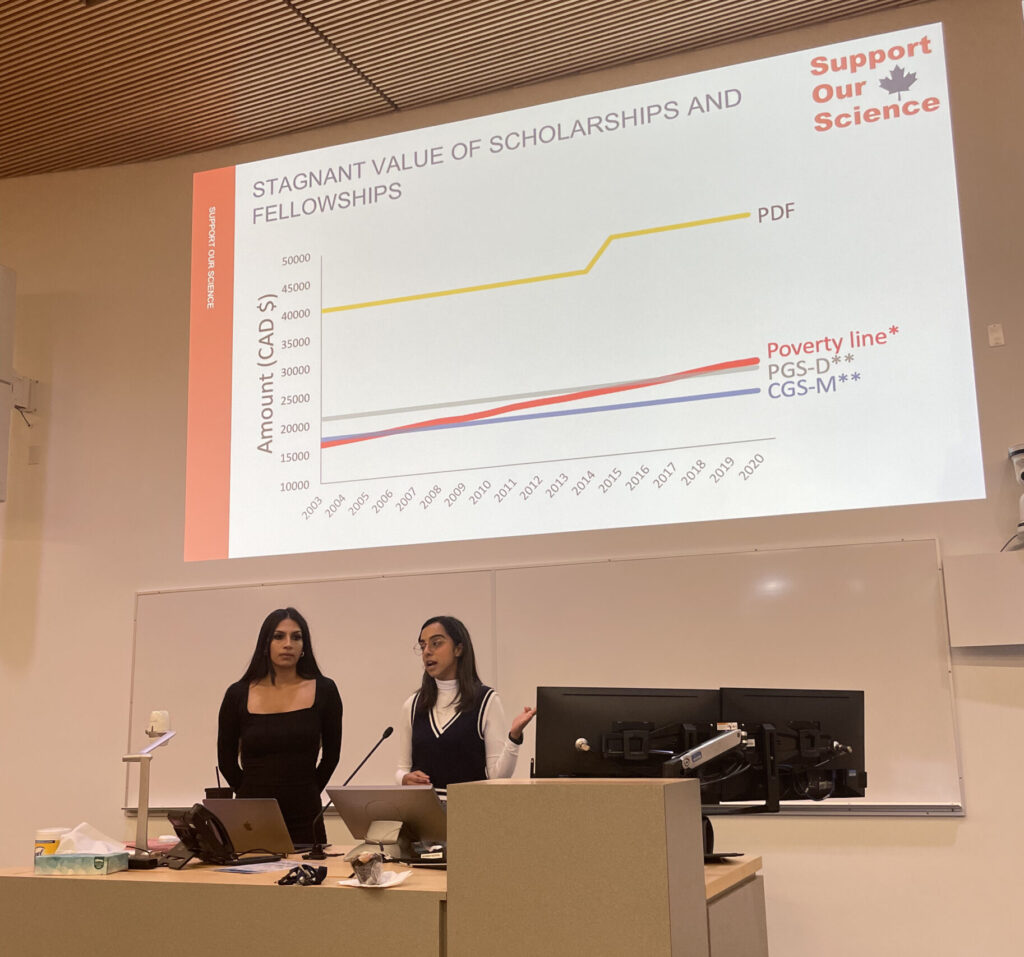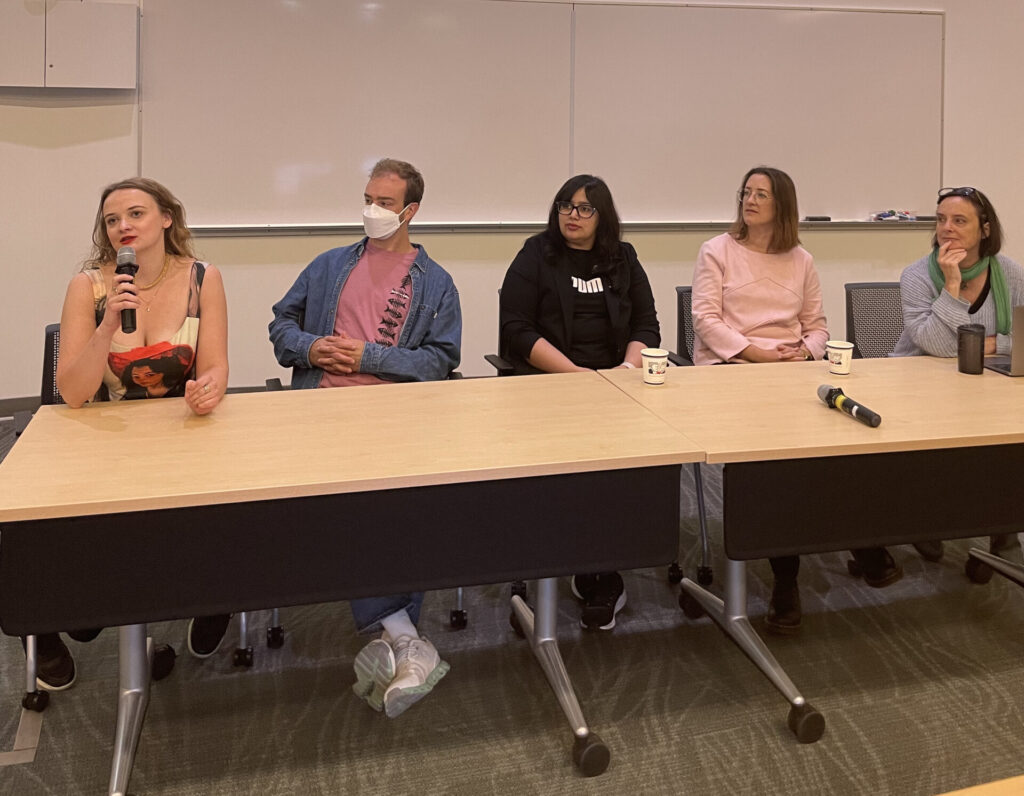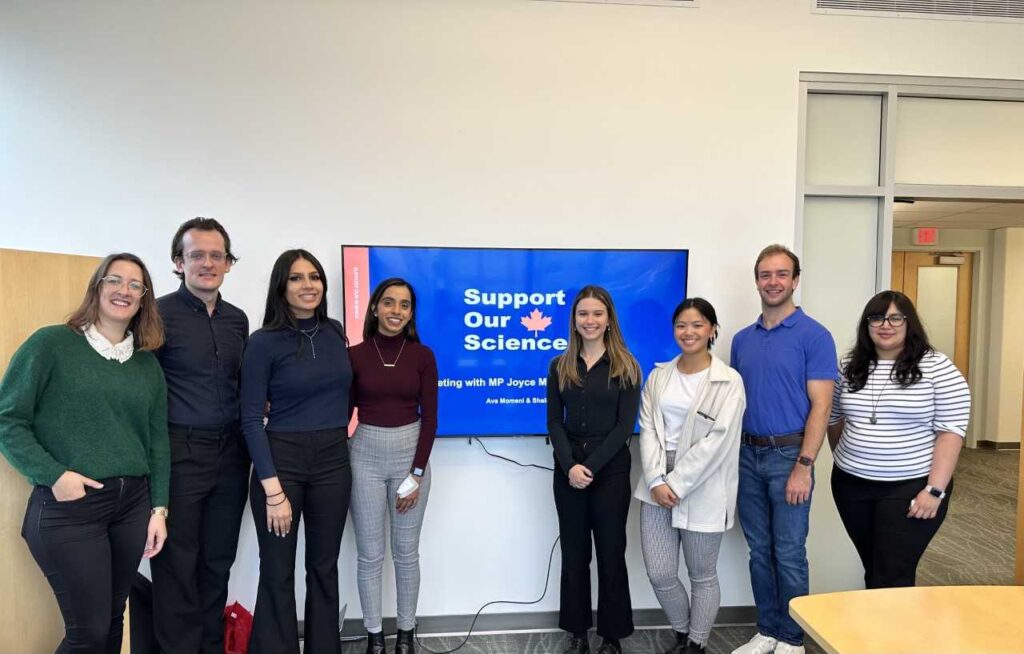DMCBH trainees have been actively involved with Support Our Science (SoS), a grassroots organization with the mission of improving pay for graduate students and postdoctoral scholars in Canada. Federal funding has not changed since 2003, while the number of graduate students and post-docs have doubled. SOS is advocating for an increase in the value and number of Tri-Agency graduate and postdoctoral scholarships, and to index all scholarships and fellowships to inflation going forward.
In support of advocacy week (September 25-29, 2023) and a follow-up movement to last spring’s walkout, UBC’s Neuroscience Trainee Association (NTA) hosted a town hall and panel to highlight the goals and mission of SoS, in addition to sharing concerns and experiences of graduate students and postdocs.
“The meeting really highlighted the inequities grad students and postdocs face in terms of financial support in Canada,” says Shalini Iyer, the Director of Outreach and Engagement for SoS and NTA Co-president. “We were glad to have support from graduate students, postdocs, staff and faculty at our event.”

Presenters Shalini Iyer and Ava Momeni
The event started off with an introduction and presentation by Shalini and Ava Momeni, the VP Community Outreach of the NTA. The presentation included an overview of SoS and what the organization has accomplished so far, including launching a series of House of Commons petitions supported by Members of Parliament (MPs) from different political parties, contacting Minister Freeland as she and her staff are working on the budget update for the fall, and producing press releases and a pre-budget submission.
Shalini and Ava also spoke about the consequences of poor funding for graduate students and postdocs, such as the inequities and stressors that come with the high cost of living but limited funding. In 2020, only 2.3% Indigenous, 4.4% people with disabilities and 20.1% people of colour received funding (specifically Canada Graduate Scholarship – Master’s). Many students are leaving to Europe and USA which offer better financial support. Shalini and Ava shared different ways UBC and the public can help support the organization’s mission such as contacting government representatives, generating awareness through social media campaigns, and engaging in SoS-related events.

Following the presentation was a moderated panel consisting of (pictured in the image above from L-R): Tetiana Poliakova (International PhD student), Andrew Thompson (PhD student), Dr. Mehwish Anwer (International Postdoctoral Fellow), Dr. Larissa Kraus (International Postdoctoral Fellow), and Dr. Rebecca Todd (DMCBH faculty member).
The panel discussed a variety of issues, including the importance of increasing the value and number of Tri-Agency graduate scholarships and postdoctoral fellowships that SoS is asking for, as well as how a lack of tri-council awards also impacts the Principal Investigators and their research labs.
“It’s harder to recruit students. Lots of faculty members will top off stipends with grants but that depends on your own funding,” says Dr. Todd. “When you try to put a living wage on your graduate students you can be dinged by the funding bodies for padding your grant funding.”
To help increase funding, the panel suggested that institutions should aim to standardize funding across departments, and unionize to protect graduate students and postdocs.
Over 2000 calls to MPs were made across Canada on September 22. On October 16, NTA students had a meeting with Brianne La Pierre, the Constituency Assistant at MP Joyce Murray’s office. Based on Brianne’s recommendations, the students plan on writing a policy paper to be submitted to MPs in BC.
“If everyone does the tiniest little bit, we can snowball these efforts and really make an impact,” says Dr. Larissa Kraus.

From L-R: Dr. Larissa Kraus, Ronan Denyer, Ava Momeni, Shalini Iyer, Brianne La Pierre, Lhyanne Soto, Andrew Thompson, Dr. Mehwish Anwer


